Discover Radical Candor: Communication at Work
Radical Candor: Communication at Work

Radical Candor: Communication at Work
Author: Kim Scott, Jason Rosoff & Amy Sandler
Subscribed: 8,118Played: 52,582Subscribe
Share
© Copyright Radical Candor 2024
Description
Learn to love your job and kick ass at work without losing your humanity by practicing the principles of Radical Candor. Improve your feedback and communications skills, become a better leader, manager or team player, and drive your #careergoals in the direction of your dreams. Host Amy Sandler leads discussions with Radical Candor co-founders Kim Scott and Jason Rosoff about what it means to be Radically Candid, why it’s simple but not easy to Care Personally and Challenge Directly on the daily, and why it’s worth it. Tune in to get actionable tips for doing the best work of your life and building the best relationships of your career, and don't forget to read Kim Scott's New York Times and Wall Street Journal bestselling book Radical Candor: Be a Kick-Ass Boss Without Losing Your Humanity!
Become a supporter of this podcast: https://www.spreaker.com/podcast/radical-candor-communication-at-work--5711404/support.
Become a supporter of this podcast: https://www.spreaker.com/podcast/radical-candor-communication-at-work--5711404/support.
129 Episodes
Reverse
Choice overload and how it affects our ability to make satisfying career choices.Join Kim Scott and Amy Sandler to delve deep into the concept of choice overload, a common trap for many facing career decisions. They define choice overload and how it affects our ability to make satisfying career choices. Throughout the episode, they use personal anecdotes and theoretical insights to illustrate the struggles and strategies related to decision-making in the face of overwhelming options.The discussion evolves as they explore the roles of maximizers and satisficers—two distinct decision-making styles that influence how we approach our career paths. Kim and Amy discuss the advantages and challenges of each style, providing listeners with the tools to better understand their preferences.They conclude with practical advice for anyone struggling to make career decisions, emphasizing the importance of balancing ambition with personal happiness and the need to adapt as one's career evolves. This episode is a must-listen for anyone who feels stuck at a career crossroads or overwhelmed by the multitude of paths available.Get all of the show notes at RadicalCandor.com/podcast.Episode links:Radical Candor S3 Ep 9: The Problem With PassionYou Don't Have To Be Passionate About Your Job | Radical CandorConnect:WebsiteInstagramTikTokLinkedInFacebookXYouTubeChapters:(00:00:00) IntroductionHosts Kim Scott and Amy Sandler introduce the episode's theme of career choice overload(00:01:11) The Burden of Abundant ChoicesPersonal experiences of having too many choices, illustrated by the story of "Balaam's Ass."(00:03:18) Maximizers vs. SatisficersDifferent decision-making styles: maximizers who seek the best possible outcome and satisficers who settle for good enough.(00:10:16) Balancing Personal and Professional LifeFinding a balance between career aspirations and personal happiness, focusing on enjoying the process rather than fixating on specific outcomes.(00:15:17) The Role of Advice in Career DecisionsThe influence of career advice and the sometimes unhelpful stereotypes and expectations.(00:17:51) The Importance of Prioritizing Desires and InterestsIdentifying and pursuing one's passions and how they drive career choices and the importance of taking small steps and exploring various interests(00:24:50) Practical Approaches to Career ChoicesHosts engage in exercises to envision different life scenarios based on varying career and personal goals.(00:37:55) Philosophies of Wealth and HappinessComparing desire and income, and how they contribute to a sense of wealth and contentment.(00:44:55) Radical Candor TipsKey lessons from the episode with actionable tips on overcoming decision paralysis in careers.(00:45:46) ConclusionBecome a supporter of this podcast: https://www.spreaker.com/podcast/radical-candor-communication-at-work--5711404/support.
Understand and navigate the murky waters of toxic management.Hosts Kim Scott, Jason Rosoff, and Amy Sandler delve into the detrimental impact abusive bosses can have on career trajectories. The hosts explore how such leadership styles can suppress assertiveness and hinder professional progression, especially contrasting the experiences of those in superstar and rockstar modes. With insights from the latest studies and rich personal narratives, this episode equips listeners with the tools to understand and navigate the murky waters of toxic management, aiming to empower individuals to protect and advance their careers despite challenging leadership.Episode Links:Episode show notes and resourcesPsychological Abuse & Destructive Leadership Leaving CNN Was How Brooke Baldwin Found Her Voice Do You Want to be a Great Leader? Embrace Neurodiversity Why You Should Embrace A Speak-Truth-To-Power Culture Here’s How Speak-Truth-To-Power Meetings Can Make Your Workplace More Equitable S4 Ep.1 Rock Star Mode Versus Superstar Mode Website / YouTube S4 Ep.14 Quiet Quitting Speaks Loudly About Bad Bosses Website / YouTubeRadical Respect: How to Work Together BetterConnect:Website Instagram TikTok LinkedIn Facebook X YouTubeChapters:(00:00:00) IntroductionHosts Kim Scott, Jason Rosoff, and Amy Sandler introduce the episode’s topic of the impact of bad bosses.(00:00:31) Defining Superstar and Rockstar ModesThe differences between "superstar mode" and "rockstar mode" in career trajectories and how these relate to personal and professional growth.(00:03:16) The Impact of Abusive LeadershipHow abusive leadership affects employees differently based on their career trajectories.(00:06:59) Personal Experiences and Broader ImplicationsA personal story about dealing with inappropriate comments from a boss and the broader implications of not challenging abusive behavior.(00:10:41) Discussion on Greed vs. Strategic Choices in CareerMotivations behind employee reactions to bad bosses and how these reflect responses to abusive environments.(00:15:21) Systemic Issues and Personal AgencySystemic problems of destructive leadership and personal agency within toxic work environments.(00:19:14) Strategies for Dealing with Abusive BossesPractical strategies for employees dealing with abusive bosses.(00:24:27) Exploring Exit StrategiesIdentifying exit strategies from toxic work environments and the importance of reaching out to extended network acquaintances.(00:27:46) Encouraging Advocacy and Support in the WorkplaceThe importance of advocacy and support within the workplace and how individuals can support colleagues.(00:38:10) Radical Candor TipsKey tips on confronting abuse in the workplace and advocating for a supportive and proactive workplace culture.(00:41:30) ConclusionBecome a supporter of this podcast: https://www.spreaker.com/podcast/radical-candor-communication-at-work--5711404/support.
Strategies for managers to communicate distinguishing feedback that is up for discussion versus directives that need to be followed.Kim and Jason answer a listener question addressing a critical aspect of leadership: how to ensure that feedback leads to actionable results. They dissect the listener's dilemma about differentiating between feedback that should be considered and feedback that must be implemented. Through a detailed discussion, the hosts provide invaluable advice on maintaining a balance between directive feedback and encouraging open, constructive dissent within teams. Listen as they share techniques for overcoming resistance to feedback, setting performance standards, and building a culture of commitment and collaboration.Episode Links:PMWorld 360 article about Andrew Grove and his “Listen, Challenge, Commit” philosophyConnect:Website Instagram TikTok LinkedIn Facebook X YouTubeGet all the resources and show notes at RadicalCandor.com/podcastChapters:(00:00:00) IntroductionHosts Kim Scott and Jason Rosoff introduce the episode and outline a listener's question on how to ensure feedback is implemented, not just considered.(00:02:01) Discussing Feedback AcceptanceStrategies for managers to communicate distinguishing feedback that is up for discussion versus directives that need to be followed.(00:04:08) Encouraging DisagreementHandling resistance to feedback and strategies for managers to foster an environment where feedback is given and also constructively challenged.(00:06:35) Listen, Challenge, CommitThe commitment phase of the feedback process, and the importance of committing to a path forward after feedback and disagreement.(00:11:26) Subjective Feedback and Data-Driven DecisionsChallenges of subjective feedback and the importance of using data to support feedback and decisions when possible.(00:13:55) Addressing Feedback ResistanceMethods to address and overcome resistance to feedback with focus on recognizing good ideas, even if they deviate from the manager's initial thoughts.(00:16:39) Handling Personal FeedbackKim shares a personal anecdote to illustrate how perceived aggression can impact feedback reception, and addressing such issues directly.(00:26:22) Radical Candor TipsActionable tips for implementing radical candor in leadership, emphasizing listening, challenging directly, and committing to a course of action.(00:27:46) ConclusionBecome a supporter of this podcast: https://www.spreaker.com/podcast/radical-candor-communication-at-work--5711404/support.
Everyday actions, when turned into rituals, can manage emotions and create a sense of control and purpose.For Stress Awareness Month, here's another Bonus episode where Harvard Business School Professor Michael Norton joins Amy Sandler to discuss his latest book, "The Ritual Effect."Norton explores the significance of rituals in reducing stress and enhancing productivity, both at work and in personal life. He shares compelling research and personal anecdotes that illustrate how everyday actions, when turned into rituals, can manage emotions and create a sense of control and purpose. The conversation covers the practical application of rituals in business settings, their emotional significance, and how they can foster team cohesion and workplace wellness.Whether you're a skeptic or a believer in the power of rituals, this episode offers valuable insights into how structured routines can lead to greater emotional health and professional effectiveness.Episode Links:Michael Norton: Website Norton’s BooksHarvard Business School Profile: Website Norton’s paper on humblebragging: Humblebragging: A Distinct and Ineffective Self-Presentation Strategy Norton’s paper on matchmaking: Matchmaking Promotes HappinessNorton’s ritual quiz: What Are Your Rituals?Connect:Website Instagram TikTok LinkedIn Facebook X YouTubeGet all the resources and show notes at RadicalCandor.com/podcastChapters:(00:00:00) Introduction Amy Sandler introduces guest Michael Norton and his book "The Ritual Effect”(00:02:05) The Importance of RitualsAn anecdote about knocking on wood introduces the relevance of rituals in different contexts and how rituals naturally form and help in stress management.(00:09:46) Habit vs. Ritual The difference between habits and rituals, highlighting the emotional connections that define rituals(00:11:56) Rituals and Emotion ManagementThe emotional impact of rituals, termed as "emo-diversity," and how rituals help manage a wide spectrum of emotions.(00:14:48) Collective Rituals and Emotional BondsCommunal aspects of rituals, their historical and cultural significance, and how they strengthen social bonds and collective identities.(00:16:13) Implementing and Adapting Rituals in TeamsWays leaders can facilitate the development of rituals allowing for organic growth within teams that reflect their unique values and culture.(00:23:21) Rituals, Technology, and Adapting to ChangeThe adaptation of rituals to technological changes and societal shifts, particularly in response to the COVID-19 pandemic.(00:28:47) The Role of Rituals in the WorkplaceThe importance of rituals at work for individuals and leaders, aiming to reflect on how these can make a workday more meaningful.(00:32:37) Evaluating the Benefits of RitualsFunctional benefits of rituals and how these practices contribute positively to mental health and well-being.(00:36:02) Reflecting Organizational Values Through RitualsHow rituals at work can reflect and reinforce organizational values, enhancing team bonding and individual satisfaction.(00:41:33) Introduction to the Ritual QuizNorton introduces his ritual quiz, designed to help individuals identify and understand their personal and work-related rituals.(00:45:04) ConclusionBecome a supporter of this podcast: https://www.spreaker.com/podcast/radical-candor-communication-at-work--5711404/support.
Ally Love discusses the transformative power of Radical Candor in her career and personal life.In this Best Of Radical Candor, we revisit one of our most popular episodes. Kim, Jason, and Amy chat with Ally Love, TODAY Show contributor, renowned Peloton instructor, and founder of Love Squad. They delve into Ally's integration of the Radical Candor framework into both her professional and personal life, exploring how it has bolstered her confidence and leadership skills. Listeners will gain valuable insights on maintaining wellness amidst a demanding career, the power of morning affirmations, and the impact of honest communication on relationships. This episode not only shares Ally's transformative journey but also provides practical advice for anyone looking to enhance their life through authenticity and mindful leadership. With a number of great episodes to choose from, check out our vast back catalog of episodes.Connect:WebsiteInstagram TikTok LinkedIn Facebook X YouTubeGet all the resources and show notes at RadicalCandor.com/podcastChapters:(00:00:00) Introduction We introduce and guest Ally Love, founder of lifestyle brand Love Squad and Peloton instructor(00:04:13) The Personal Happiness RecipePersonal routines that contribute to happiness and well-being, highlighting the importance of staying centered and mindful.(00:10:15) The Power of Morning AnchorsAlly’s morning routine of setting an emotional anchor, emphasizing the value of choosing how to feel and react to daily challenges.(00:15:26) Career Journey and ChallengesOvercoming early career challenges and how personal setbacks have shaped Ally’s professional journey and leadership style.(00:21:02) Implementing Radical Candor in LeadershipHow Radical Candor shaped Ally’s leadership style at Love Squad and Peloton, focusing on understanding individual needs and communication styles(00:25:52) The Impact of Leadership and Choreography in Team DynamicsSimilarities between leadership and choreography and how to curate effective team dynamics and maintain curiosity about team members' evolving goals.(00:29:21) The Essence of Being a BossAlly’s definition of being a 'boss' in life and work, using her platform to foster positivity and standards.(00:33:39) Radical Candor in Personal LifePersonal stories illustrating the application of ‘Radical Candor’ in marriage and professional interactions, underscoring its effectiveness in building trust and clarity.(00:40:04) Radical Candor and Habit BuildingAdvice on using Radical Candor as a guide for building habits and healthy practices in daily life.(00:44:06) Origins and Growth of Love SquadThe founding of Love Squad, from its beginning as a personal project to build a support network and evolution into a platform for empowering women through events and partnerships.(00:50:21 Future Aspirations and Favorite ThingAlly Love shares her aspirations for continuity in her career and potential diplomatic roles, as well as her favorite feel good song.(00:52:22) ConclusionBecome a supporter of this podcast: https://www.spreaker.com/podcast/radical-candor-communication-at-work--5711404/support.
The Radical Candor episode of the Think Fast, Talk Smart podcast, hosted by our friend Matt Abrahms, is up for the Webby award for Best Individual Podcast Episode in the Business category. We’re dropping it in this week so you can listen and we’re asking you to please vote for it at fastersmarter.io/webby. Voting is open until April 18th — let’s get that Webby! Vote and share it on social media to encourage others to do the same!Have questions about Radical Candor? Let's talk >>Follow UsInstagramTikTokLinkedInYouTubeFacebookXEmail us at: podcast@radicalcandor.com.Become a supporter of this podcast: https://www.spreaker.com/podcast/radical-candor-communication-at-work--5711404/support.
We’ve talked about knowing whether or not being a manager is right for you and manager burnout, but what if no one wants to be a manager at all? Kim, Jason, and Amy discuss the challenges and motivations for becoming a manager. They explore the survey results that show a lack of interest in people management, the reasons behind it, the role of middle managers, and the emotional labor involved in being a manager.Radical Candor Podcast ChecklistDefine the role. Teach people what the job of management is and provide the training and resources to help them succeed.Create a buddy or mentorship program so people interested in people management can experience some of the positive aspects of building relationships, guiding teams to achieve results and helping people take steps in the direction of their dreams. If you want to explore the manager dilemma further, listen to S5, Ep.25: Should I be a manager? And S6. Ep.2: Managers are Burned Out, Too.Get all the resources and show notes at RadicalCandor.com/podcastChapters[00:00] Introduction[00:38] Survey Results and TikTok Videos[06:04] Motivations for Becoming a Manager[10:11] The Role of Middle Managers[12:21] The Challenges of Middle Managers[21:19] Redefining the Role of Managers[25:26] The Importance of Defining the Role[28:06] The Value of Player Coaches[29:41] Motivations for Becoming a Manager[36:42] Inspiring Moments in Management[43:14] The Radical Candor ChecklistFollow UsInstagramTikTokLinkedInYouTubeFacebookXBecome a supporter of this podcast: https://www.spreaker.com/podcast/radical-candor-communication-at-work--5711404/support.
Kim is fresh back from SXSW where she was hosting a live episode of her other podcast Radical Respect — you may notice some bonus episodes of it in your feed — and officially launching her forthcoming book Radical Respect, available for pre-order everywhere books are sold. The team also discusses mentorship, the benefits and drawbacks of conferences and retreats, and they each paint a picture of their ideal Radical Candor getaway. Amy reflects on her 2013 SXSW experience, including an all-night hunt for Grumpy Cat.Get all the notes and resources at RadicalCandor.com/podcastChapters[00:00] SXSW Radical Respect podcast, and conference experiences. [04:15] Radical Respect and Conference Experiences. [10:31] Radical Candor and its Impact.[16:40] Structuring a retreat for Radical Candor. [21:21] Retreat format and what fills people up. [23:37] Retreat planning for leaders with a focus on Radical Candor. [28:45] Mentorship and finding mentors for career success. [33:09] Mentorship dynamics and the importance of listening. [35:08] Empathy, mentorship, and helping others in the workplace.[37:22] Mentorship and networking in the industry. [39:34] Mentorship and informal learning opportunities. [42:18] Radical Respect in the Workplace. [45:04] Mentorship, boondoggles, and effective communication.Watch Kim and Wesley's live SXSW talk: Radical Respect: How To Work Together Better | SXSW 2024Follow UsInstagramTikTokLinkedInYouTubeFacebookX Contact uspodcast@radicalcandor.comBecome a supporter of this podcast: https://www.spreaker.com/podcast/radical-candor-communication-at-work--5711404/support.
Kim, Jason, and Amy discuss a listener's question about how to confront and disrupt bias in management at work for women working in male-dominated fields. Jason and Kim role-play a scenario where a manager is clearly biased and explain how to disrupt bias in the moment. They also discuss documenting incidents and when it's time to go to HR.Get all the show notes and resources at RadicalCandor.com/podcast.Chapters00:00 Confronting Bias at Work08:26 Recognizing Bias and Growth Mindset13:33 Going to HR or Addressing Bias Directly19:09 Managing Up and Coaching Up23:39 Role Play: Addressing Bias with Manager28:15 Reflecting on the Role Play34:59 Double Standards and Prejudice37:11 Being Tough in the Workplace39:03 Dealing with Biased Perceptions41:40 Coaching Managers43:26 Building Relationships with Managers46:02 Addressing Bias and Prejudice48:57 Creating Cultures of Open Communication52:41 Building Solidarity and Documenting Incidents54:49 Tips and Closing RemarksFollow UsInstagramTikTokLinkedInYouTubeFacebookX Become a supporter of this podcast: https://www.spreaker.com/podcast/radical-candor-communication-at-work--5711404/support.
Amy and Jason engage in a thought-provoking conversation about the impact of AI at work in the realm of Radical Candor. They delve into the evolution of AI, its impressive and limiting aspects, and the challenges of its adoption. They also highlight the importance of interpersonal skills and domain expertise in the age of AI, and how it can be a game-changer in conflict resolution and communication. Jason showcases the Radical Candor Knowledge Bot and Practice Partner as prime examples of AI applications in the field.Get all of the show notes and resources at RadicalCandor.com/podcast.Chapters00:00 Introduction and AI Identity02:26 The Evolution of AI and the Role of Large Language Models05:25 The Impressive and Limiting Aspects of AI08:56 The Relevance of AI and the Challenges of Adoption12:01 The Importance of Interpersonal Skills and Domain Expertise25:16 The Role of AI in Clarity and Conflict Resolution29:16 The Radical Candor Knowledge Bot and Practice Partner34:56 The KnowledgeBot and Self-Assessment36:20 Using AI for Therapy and Existential Questions39:35 The Practice Partner for Radical Candor45:26 AI in the C-Suite and Business Value48:09 The Shift of Roles and Talent Management52:45 AI Making Leaders Smarter and Faster58:05 AI's Impact on Writing and Journalism01:06:19 Ethical Considerations and Responsible AI01:08:10 Tips for Getting Started with AI01:10:20 Tips for Learning AI01:10:32 Finding Interesting AI ApplicationsFollow UsInstagramTikTokLinkedInYouTubeFacebookXBecome a supporter of this podcast: https://www.spreaker.com/podcast/radical-candor-communication-at-work--5711404/support.
Collaboration is probably the most used buzzword in the corporate world, yet it is often misunderstood. Vijaya Kaza, Chief Security Officer & Head of Engineering for Trust and Safety at Airbnb, joins Kim for a Radically Candid Conversation about Radical Collaboration. Get all of the resources and show notes at RadicalCandor.com/podcastAn impact and results-driven C-level technology and business executive with experience leading engineering, product management, design, information security and operations, Vijaya Kaza was recently named as one of The Female Quotient and Deloitte’s Top 30 Women in Cyber for 2023.ChaptersCollaboration and Radical Candor in Leadership. (00:00)Collaboration, disagreement, and feedback in the workplace. (07:38)Collaboration and communication in the workplace. (16:55)Collaboration types and their impact on workplace culture. (20:58)Fostering collaboration and debate in teams. (31:31)Effective collaboration and disagreement in the workplace. (37:58)Follow UsInstagramTikTokLinkedInYouTubeFacebookXBecome a supporter of this podcast: https://www.spreaker.com/podcast/radical-candor-communication-at-work--5711404/support.
This bonus episode is from the Radical Respect podcast with Kim Scott and Wesley Faulkner based on Kim's forthcoming book, Radical Respect: How to Work Together Better. On this episode, Kim and Wesley talk to workplace culture expert Denise Hamilton about her new book, Indivisible: How to Forge Our Differences into a Stronger Future. Denise reads passages from her book, prompting some real conversations. Are you trying to figure out how to prepare for this election year mentally? Denise's new book will help you! Plus catch Kim and Wesley Live at SXSW on March 8th!Denise Hamilton is the founder and CEO of WatchHerWork, a digital learning platform for professional women, and All Hands Group, a workplace culture consultancy. As an in-demand speaker and facilitator, she has consulted for and presented to dozens of Fortune 500 companies, including GE, Apple, IBM, Shell, BP, and Meta. Her thought leadership has been featured in Harvard Business Review, Morning Joe, FOX, Bloomberg, s+b, and Newsweek and she is a regular contributor to MIT Sloan Management Review. watchherwork.comChaptersWorkplace culture and diversity with author Denise Hamilton. (0:00)Racial disparities in maternal mortality rate in the US. (01:22)Gender disparities in medical research and treatment. (05:07)Race, power dynamics in healthcare, and personal experiences. (08:07)Race, empathy, and personal responsibility. (14:11)Racism and compassion in society. (21:44)Police brutality, language, and solidarity. (26:29)Police power and accountability. (32:29)The impact of capitalism and personal responsibility on mental health. (39:52)Political polarization and the importance of empathy. (46:36)Watch the video of this episode >>Become a supporter of this podcast: https://www.spreaker.com/podcast/radical-candor-communication-at-work--5711404/support.
Sixty percent of employers will reportedly send employees to “office etiquette” training in 2024. Whether it’s folks returning to the office after years of working remotely, or recent college grads without office experience — apparently people don’t know how to act around one another anymore. The team discusses the impact of decreased human interactions and the need to establish office behavior norms. Kim, Brandi and Jason also emphasize the importance of open communication and creating explicit norms, especially in hybrid and remote work environments. And if you work in person, don't touch other people's keyboards or drop Dorito crumbs onto their desks. Get all the show notes and resources at RadicalCandor.com/podcastChapters00:00 Introduction05:08 Challenges of Returning to the Office10:27 Creating Norms for Office Spaces14:54 The Challenge of Remote Work19:30 Setting Norms for Hybrid Teams32:21 Addressing Time Zone Challenges39:18 The Goal of Radical Candor: Connecting Through Conversation40:21 Bottoms Up Norm Setting vs Top Down Rulemaking41:21 Inefficiency as a Path to Efficiency43:31 Radical Candor ChecklistFollow UsInstagramTikTokLinkedInYouTubeFacebookX Email us: podcast@radicalcandor.comBecome a supporter of this podcast: https://www.spreaker.com/podcast/radical-candor-communication-at-work--5711404/support.
Common human decency is something everyone deserves, but not everyone gets. Especially at work. Kim and Amy discuss a case study Kim learned about during a recent visit to Harvard Business School. In this case, the co-founders of CloudFlare considered the implications of five employees' resignations over the prior three months and whether or not the resignations were symptomatic of bigger issues with CloudFlare's culture and management processes. The HBS alums then put on their case study hats as they explore the recent attention CloudFlare has received for its poor handling of layoffs after Brittany Pietsch filmed her own layoff and it subsequently went viral on TikTok. Get all of the show notes and resources at RadicalCandor.com/podcast.Follow UsInstagramTikTokLinkedInYouTubeFacebookXEpisode SummaryThe effectiveness of case studies in business education. 00:00Business case analysis and decision-making. 04:31Work culture and management practices in a tech startup. 09:58Workplace layoffs and accountability. 18:14Workplace layoffs and performance evaluations. 24:04Layoffs, performance management, and HR practices. 30:19Firing employees and accountability in the workplace. 38:38Leadership mistakes and feedback. 45:13Effective feedback and criticism in the workplace. 52:50Become a supporter of this podcast: https://www.spreaker.com/podcast/radical-candor-communication-at-work--5711404/support.
You've heard us say often that it's important to praise your employees in public (if they're comfortable with it) but to always give criticism in private. While there is almost always something for others to learn from an individual's mistake, criticizing or shaming them in public has been shown to make the person more likely to hide mistakes in the future, hurting them and the company. So how can we separate and honor our concern for the individual with the needs of the team? Get all the show notes and resources at RadicalCandor.com/podcast.Follow UsInstagramTikTokLinkedInYouTubeFacebookXBecome a supporter of this podcast: https://www.spreaker.com/podcast/radical-candor-communication-at-work--5711404/support.
For a podcast about communication at work, we sometimes use corporate jargon that doesn't always make sense—even to us. We disagree about corporate speak and what it means. Case in point, managing out. What does managing out mean? How do you know if you're being managed out? There’s definitely some misalignment on what “managing people out” means versus what it’s supposed to mean — maybe we need a new word. According to the business dictionary Jargonism, The definition of Managing Someone Out is, “The practice of giving an employee undesirable tasks, so that the employee leaves a company voluntarily.” It means something else to Kim, and Brandi thinks "managing out" is a term rife with manipulative insincerity. Listen to the conversation then let us know what you think about managing out!Get all the resources and show notes at RadicalCandor.com/podcastRelated ContentRadical Candor Podcast: Absentee Management Vs. Quiet Firing4 Things To Do When Firing Someone What Leaders Can Learn About “In-Group” Dynamics to Prevent Workplace MobbingBecome a supporter of this podcast: https://www.spreaker.com/podcast/radical-candor-communication-at-work--5711404/support.
Learn how the shift from command and control to a culture focused on collaboration. Stephen M.R. Covey joins us for our first Radically Candid Conversation of 2024 to discuss how trust-and-inspire leadership leads to happier teams, improved retention, increased productivity, and improved company culture because telling people what to do doesn't work.Get all of the show notes at RadicalCandor.com/podcast.Become a supporter of this podcast: https://www.spreaker.com/podcast/radical-candor-communication-at-work--5711404/support.
Loud laborers talk big about their projects at work while accomplishing very little. Join us to explore the characteristics of these self-proclaimed workplace heroes, as they often gravitate toward tasks that boost visibility rather than genuine productivity. Discover the impact of "loud laborers" on team dynamics and how to navigate this common workplace scenario. Don't miss out on this insightful discussion shedding light on the not-so-quiet world of office chatter! Get all of the show notes at RadicalCandor.com/podcastBecome a supporter of this podcast: https://www.spreaker.com/podcast/radical-candor-communication-at-work--5711404/support.
Hey there you introvert in an extrovert culture — we see you! Extroverts are often overrepresented on management teams and many leaders are unsure how to coach, give feedback to, and advocate for a thoughtful introverted employee in a culture where multi-tasking extroverts are rewarded. On this episode of the Radical Candor podcast, Kim, Jason and Amy answer a listener's question about how to communicate the unseen efforts and accomplishments of introverted employees to senior management.View all of the show notes at RadicalCandor.com/podcastBecome a supporter of this podcast: https://www.spreaker.com/podcast/radical-candor-communication-at-work--5711404/support.
Managers are burned out AF. A boss’s job is to guide a team to achieve results. However, in the current landscape of constant disruptions, this job is feeling impossible for some managers. What’s more, disengaged managers lead to disengaged teams. Is all hope lost? Kim, Amy and Jason weigh in.Get all of the show notes at RadicalCandor.com/podcastBecome a supporter of this podcast: https://www.spreaker.com/podcast/radical-candor-communication-at-work--5711404/support.









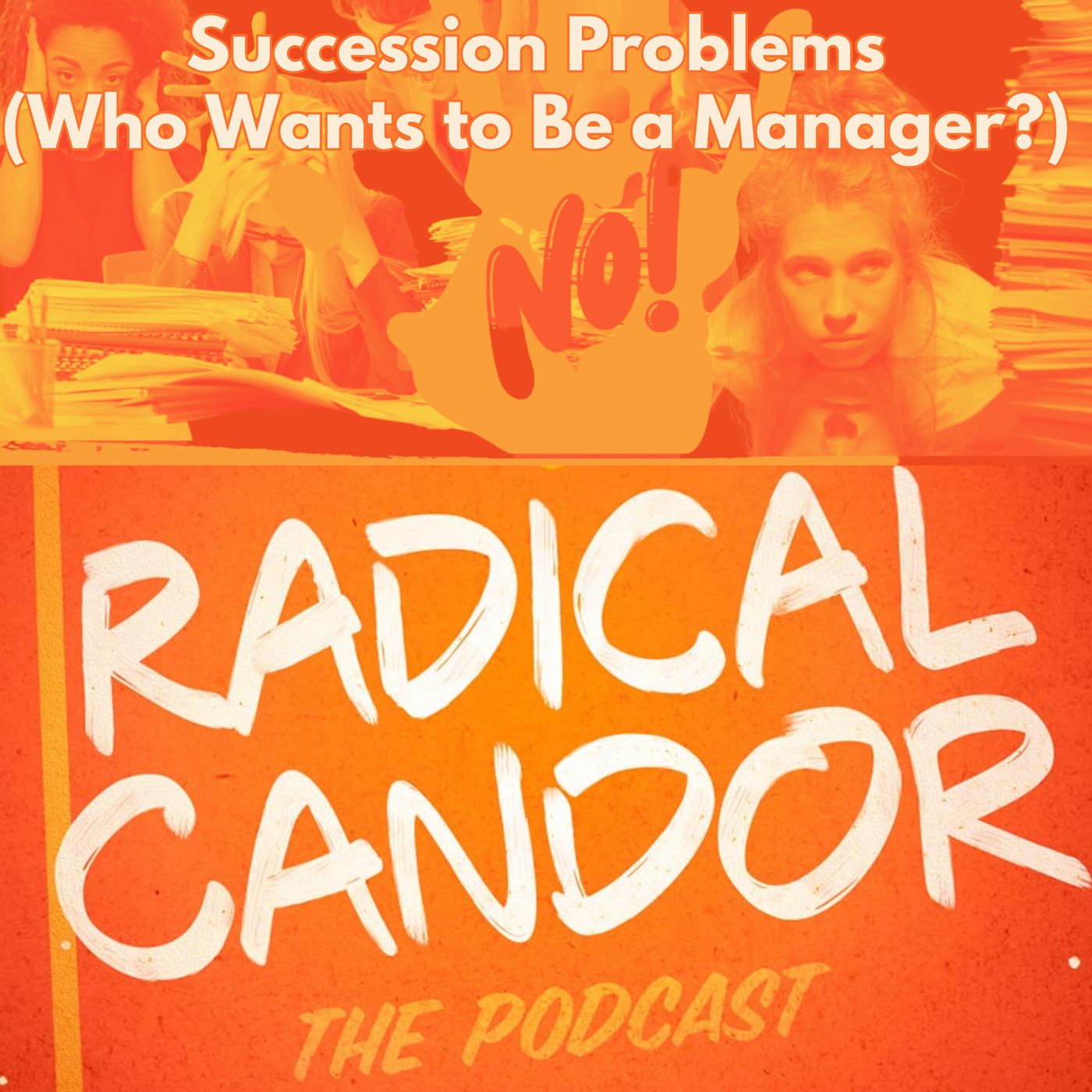


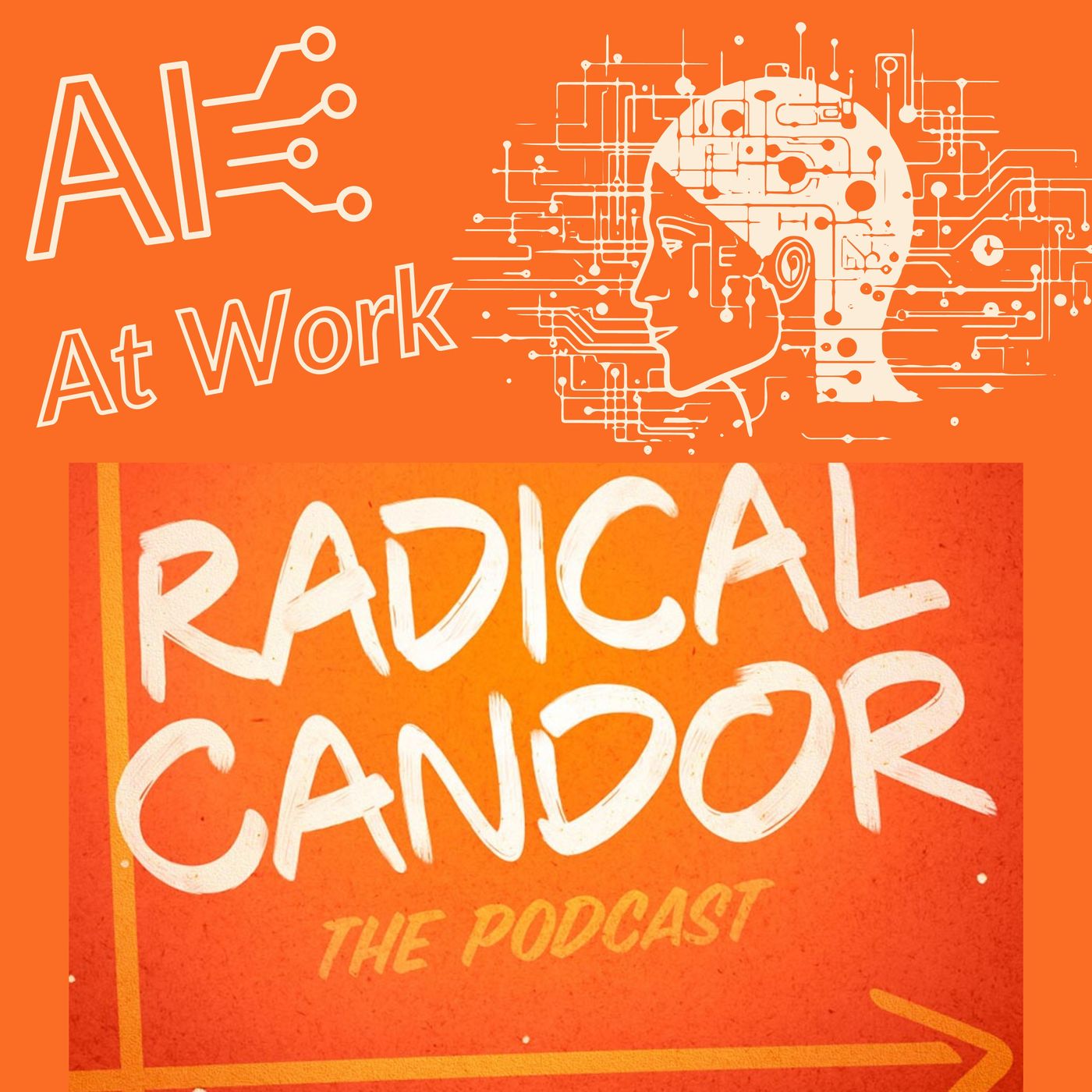

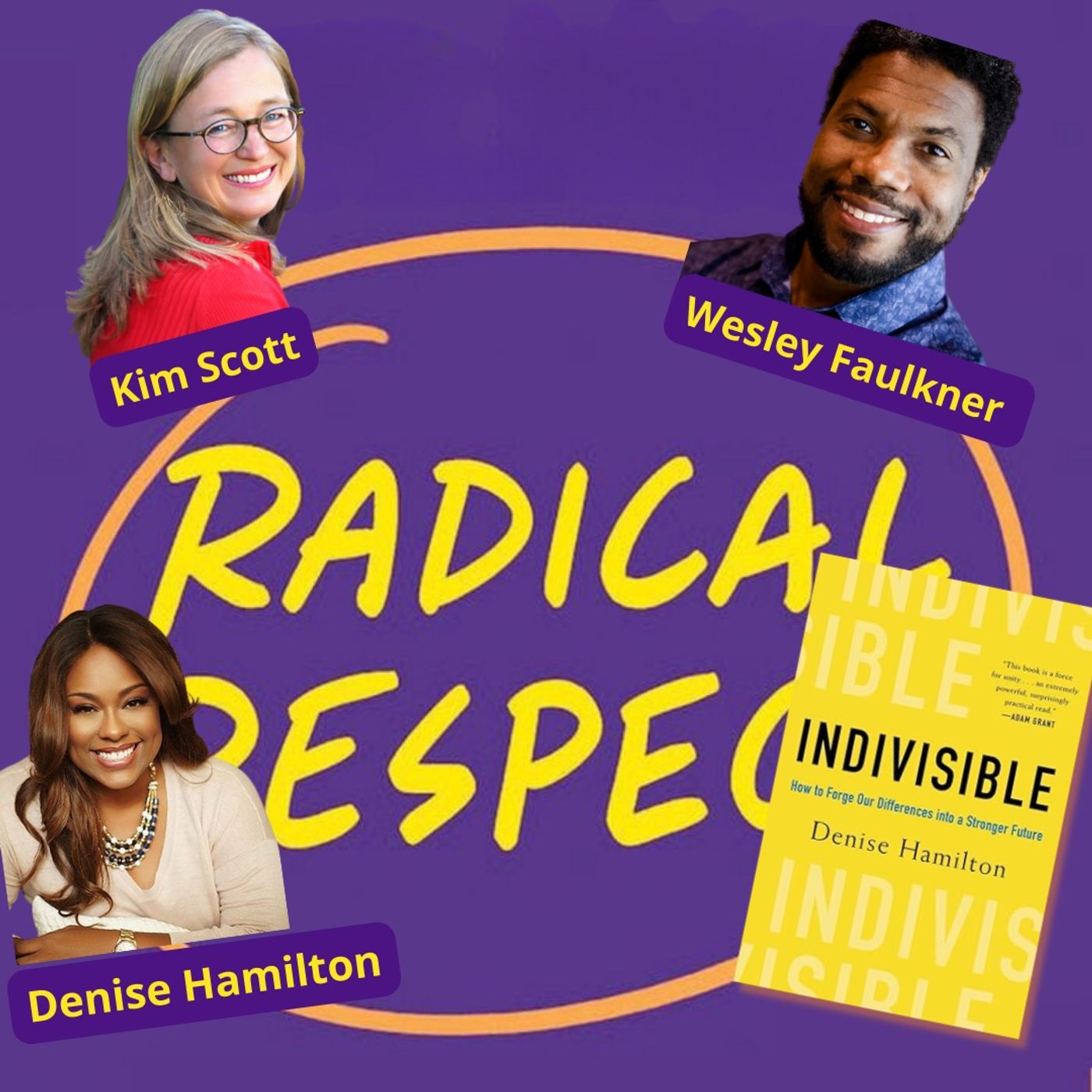

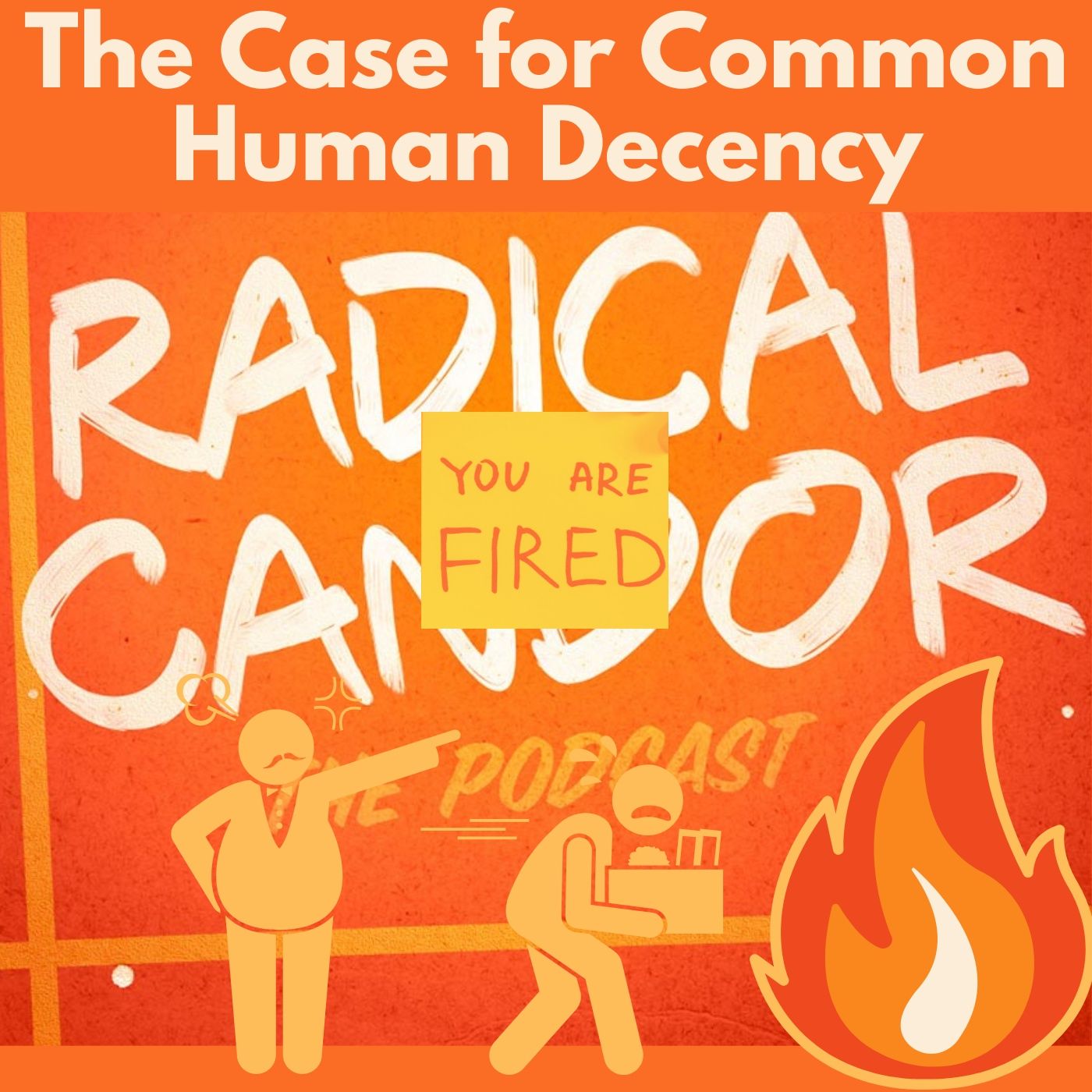





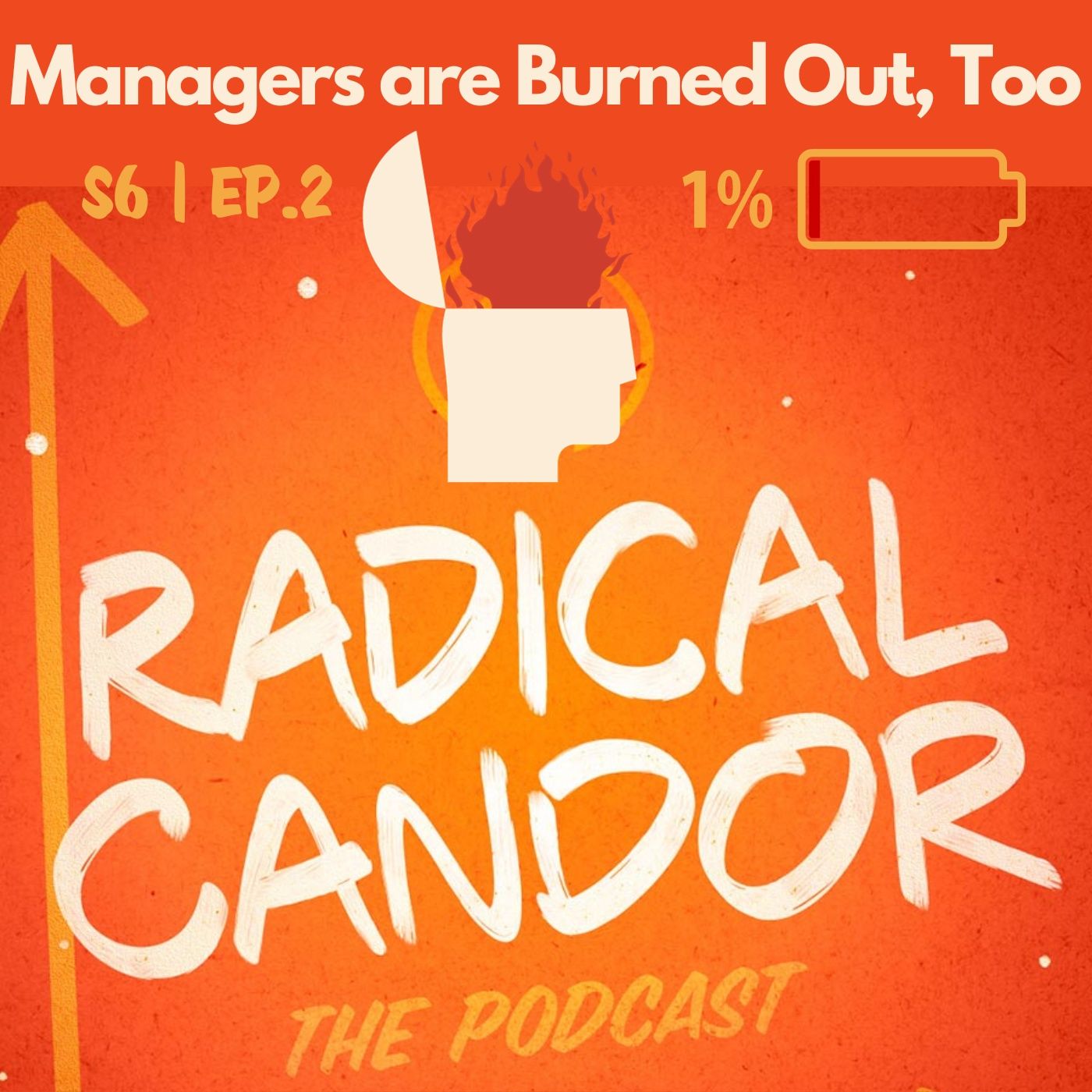



I am trying to better myself and become a leader worth having. Thank you for doing these podcasts.
will there ever be more episodes?
awesome podcast for any leader!!
Meh. Kim's voice is grating. (Not that she can do anything about it.) I am also bewildered that she shared the time she passive aggressively wrote a novel on the job for A MONTH. Both hosts also talk extensively about their time at Google. Disappointed.